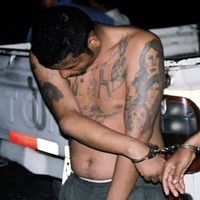High levels of crime and violence have given Central America the inauspicious title of having the world’s highest homicide rate -- about 10 times the world average. Reversing this trend will require collective, crossborder action and regional partnerships that include the private sector. Unfortunately, for this to be possible, the mechanisms needed to do so must be strengthened significantly.
Statistics paint a grim picture of what lies ahead if meaningful cooperation is not taken soon. Honduras, the most violent country, registered 91.6 homicides per 100,000 people in 2011 -- nearly triple the rate observed in 2004, according to the U.N. Office on Drugs and Crime. In El Salvador, a March 2012 truce between two notorious gangs has reportedly halved the daily death toll, which stood at 69.2 deaths per 100,000 people in 2011. But the fragile accord leaves the door open for a return to high homicide rates should gang leaders decide the truce is not serving their interests. Following its southern neighbors, Guatemala -- generally the last stop for illicit drugs before reaching Mexico and then the United States -- registered a rate of 38.5 homicides per 100,000 people last year. Even Costa Rica, a bastion of stability and economic development in the region, saw its murder rate climb to 11.3 per 100,000 people by 2010, a 60 percent jump from 2004. By comparison, the U.S. registers 4.2 homicides per 100,000.
There is no one-size-fits-all solution to the violence. In El Salvador, the bulk of the insecurity is the result of criminal gangs that take advantage of high levels of inequality and scarce jobs to recruit youths with few other options. In neighboring Guatemala, the booming narcotics and weapons trade, accompanied by the arrival of notorious Mexican gangs such as the Zetas, led Guatemalans to elect President Otto Pérez Molina on the promise that he would take an iron fist (“mano dura”) approach to the narcotraffickers. In Honduras, the 2009 coup that deposed President Manuel Zelaya has exacerbated the country’s insecurity and weak rule of law.

